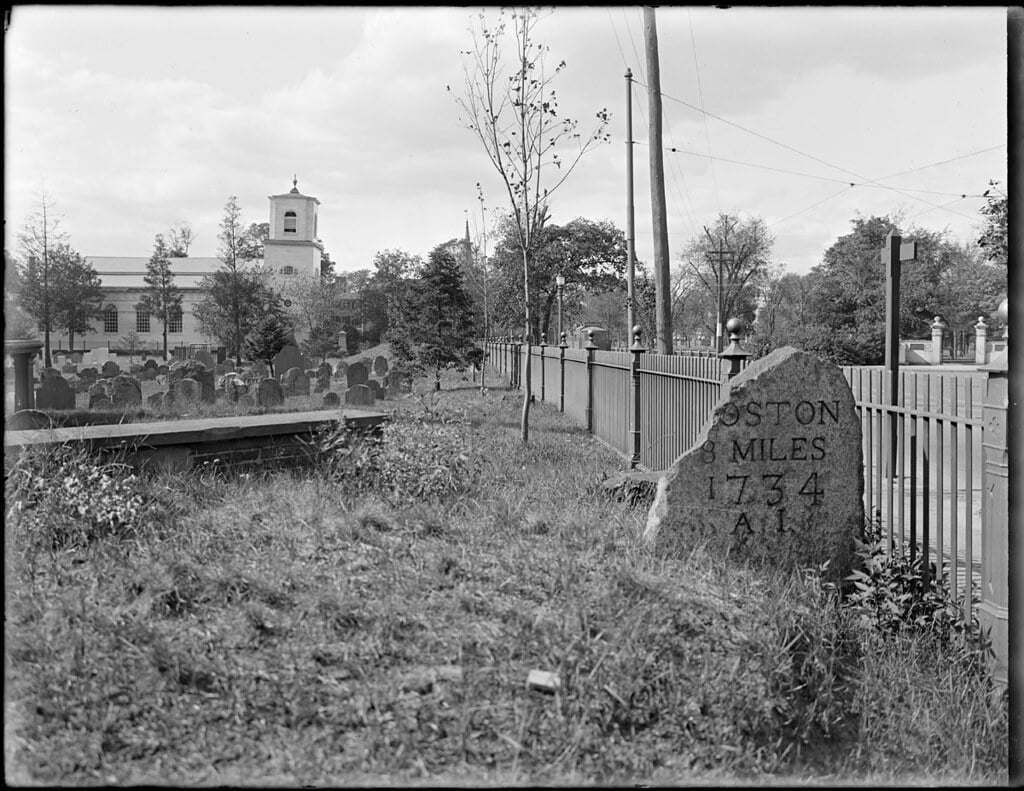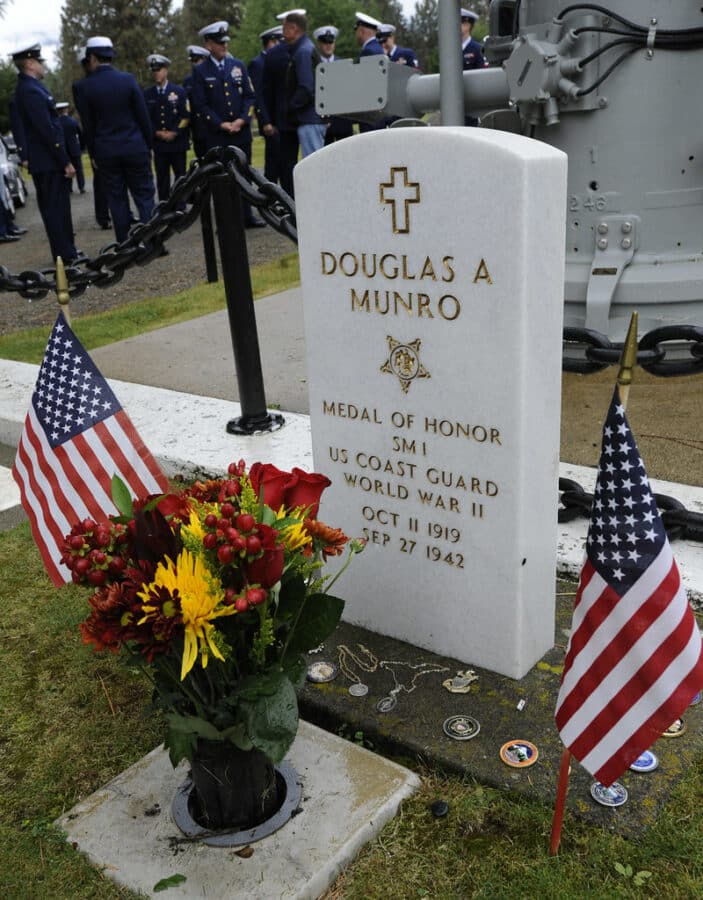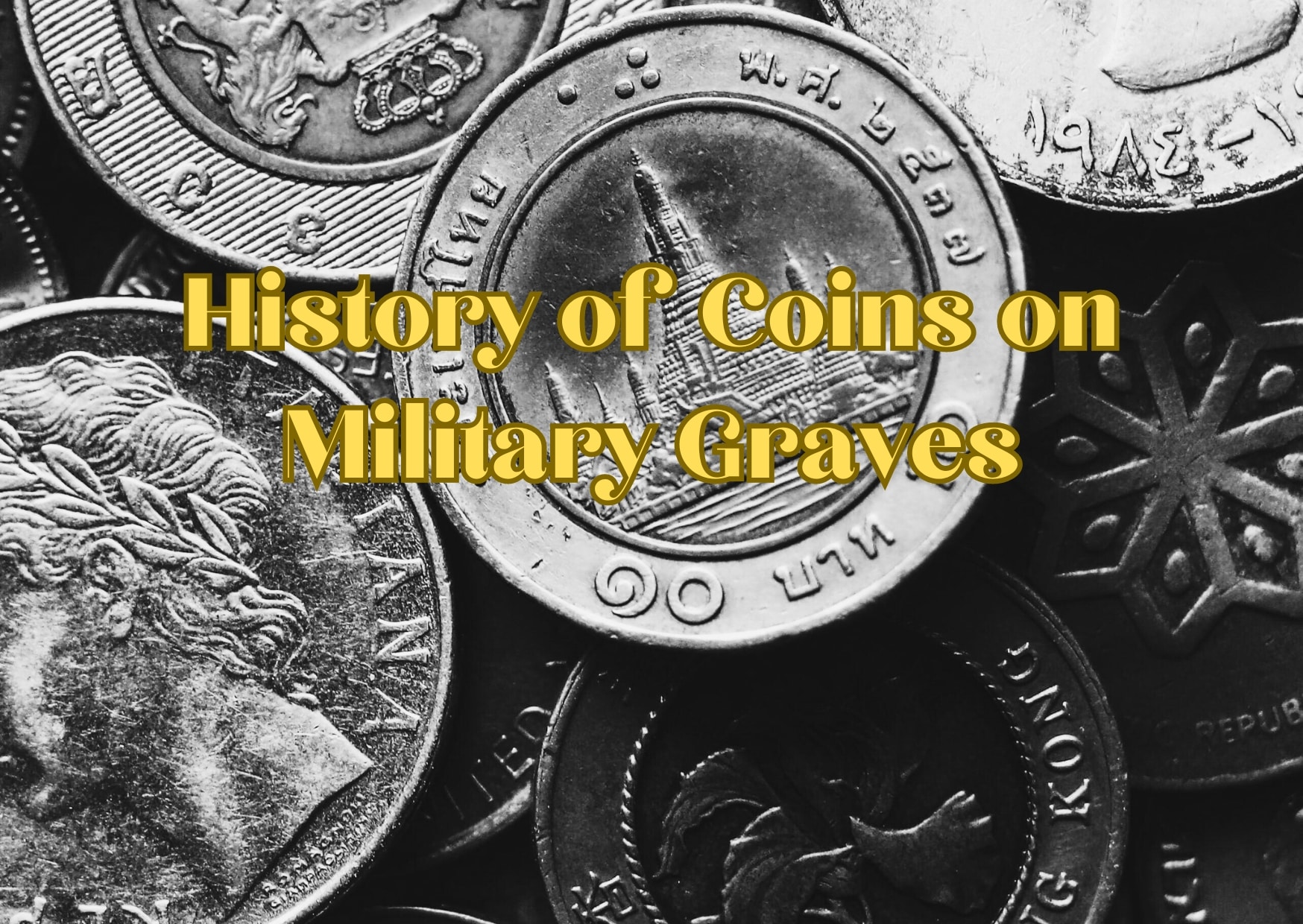Introduction
While walking through a military cemetery, you might notice something peculiar: the gravestones and headstones are not left bare. Many of them are decorated with small tokens of remembrance – coins. Although this may seem like a random act of respect, the tradition of leaving coins on graves, especially coins on headstones, has been a long-standing practice in many cultures with its own significance. It’s not simply about coins on military graves, there’s much more to it.
Seeing coins on gravestones might make you curious about the meaning behind this act. Each coin has its own denotation – from a simple acknowledgment of the visit to a deeper, more personal connection. So, let’s walk together through this symbolic cemetery and unravel the meanings behind these enduring gestures.
Origins of the Tradition
The tradition of leaving coins on the headstones of veterans goes back to the time of the Roman Empire. In those days, it was common to place a coin in or on the mouth of the deceased as payment to Charon, the ferryman who transported souls across the River Styx. Over time, this tradition evolved and found its place in military customs.
It’s important to point out that each coin left on the headstones of military personnel has a distinct meaning. Believe it or not, different value coins symbolize various connections between the person visiting the grave and the deceased. To help you unravel the significance of these symbols, we will delve deeper into the topic, whether it’s pennies on headstones or other coins on gravestones, every little detail has a story to tell and a message to unveil.
Without further ado, let’s uncover the mystery behind each coin left on the headstones of these honorable servicemen and women.

Understanding the Meaning of Coins on Military Graves
Coins left on a veteran’s headstone are not mere tokens; they convey profound messages of respect and connection. Each denomination of coin signifies a different relationship between the deceased soldier and the person leaving the offering:
One Penny – A Token of Gratitude
Leaving one penny at a veteran’s grave is a simple yet powerful way to express gratitude for their service. Even if you did not know the soldier personally, the act of leaving a penny symbolizes the sentiment, “I remember you.” It’s a penny for your thoughts, a sign of appreciation that transcends words.
Nickel – A Shared Training Experience
A nickel, on the other hand, suggests a deeper connection. It implies that the visitor went through a form of boot camp or training with the deceased, forging a bond through shared experiences and hardships.
Dime – Comrades in the Same Operation
Stumbling upon a dime at a grave signifies that the person who left it served alongside the deceased in the same military operation. It’s a poignant reminder of the camaraderie and shared sacrifices of those who served together.
Quarter – Witness to the Ultimate Sacrifice
The quarter, the highest-value coin left at graves, indicates that the visitor was present when the soldier made the ultimate sacrifice. It represents a profound connection, as the person leaving the coin bore witness to the soldier’s sacrifice for their country.
Who Leaves Coins on Graves?
Anyone may choose to leave a coin on a grave, but this tradition is particularly strong among military personnel who wish to pay their respects to fallen comrades. A penny or nickel left on a headstone is a simple way to express the sentiment, “I remember you.” Coins on veterans graves are often seen at national military cemeteries on Memorial Day and Veterans Day, but you might also find them on any given day at the final resting places of soldiers around the United States.
This tradition holds deep significance for many, but it isn’t exclusive to veterans. Sometimes, family members or friends of deceased military personnel also participate. As descendants of veterans, you might find comfort and a sense of connection in maintaining this practice. Just as people have found solace through the centuries in rituals of remembrance, you too may discover that leaving military coins on graves creates a tangible link to your heritage.
A Modern Twist on an Old Tradition
In recent years, a new custom has evolved involving the placement of coins on tombstones. Rather than simply dropping a penny or nickel onto the stone, some people are choosing to purposefully select a coin that has a special significance. For instance, a quarter might be placed as a nod to the state the veteran was from, while a dollar coin could represent the century they were born in. This modern twist adds an extra layer of personal connection and remembrance, enhancing the significance of coins on headstones.
While this practice is less well known, it adds a rich layer of symbolism and personal connection to the act of remembrance. So, the next time you visit a cemetery, consider bringing a coin. It’s a small gesture, but one that can hold great meaning for those who notice.

Conclusion
The tradition of leaving coins on military headstones is a poignant and enduring ritual that uniquely honors America’s fallen soldiers. It may appear to be a simple gesture, but the placement of pennies, nickels, dimes, or quarters on a grave carries deep and profound symbolic meaning. Each coin denomination conveys a distinct relationship between the living and the deceased, from expressing gratitude to commemorating shared experiences and bearing witness to the ultimate sacrifice. This timeless practice binds soldiers, families, and citizens in the commemoration of the sacrifices that have safeguarded our nation. Coins on military graves serve as a heartfelt custom that acknowledges profound loss while expressing eternal gratitude.
FAQs
+ One Penny: Leaving a penny signifies a simple gesture of remembrance and gratitude. It's a way to say, "I remember you."
+ Nickel: A nickel indicates a deeper connection, often forged through shared training experiences.
+ Dime: Finding a dime suggests that the person who left it served alongside the deceased in the same military operation.
+ Quarter: The highest-value coin, a quarter, symbolizes that the visitor was present when the soldier made the ultimate sacrifice.
While anyone can participate, this tradition is particularly strong among military personnel paying their respects to fallen comrades. Family members and friends of deceased military personnel also often take part. The practice may be seen at national military cemeteries on Memorial Day and Veterans Day, as well as at individual grave sites throughout the year.
No, it's not exclusive to veterans. Family members or friends of deceased military personnel may choose to leave coins on graves as a way to maintain a connection and show respect. The tradition is open to anyone who wishes to honor the sacrifices of military servicemen and women.
Yes, in recent years, some people have added a modern twist to the tradition by purposefully selecting coins with specific significance. For example, a quarter might represent the state the veteran was from, or a special coin could signify the century in which they were born. These personalized touches enhance the meaning of the coins placed on headstones.
While the tradition of leaving coins on military graves is most commonly associated with the United States, there's no reason you can't adapt it to honor veterans from other countries. The same principles of respect and remembrance can apply universally.
The editorial team at Cubebik Blog is a group of dedicated individuals with a passion for words and a commitment to quality. They work tirelessly to ensure that every article is well-researched, informative, and error-free.
Sharing is Caring!

